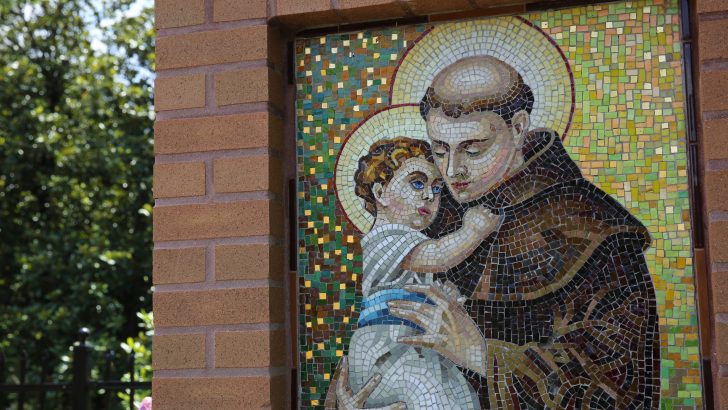The patron of lost things offers a vital link between faith and reason writes Michael Sanfey
The Financial Times newspaper has a glossy magazine called How to Spend It. Many of us disorganised souls might feel the need of a title called How to Find It. Listening to the radio recently I was surprised to hear – or was I? – that Edna O’Brien the writer prays to St Anthony if she has lost something. St Anthony is arguably the saint who resonates most closely with the largest number of people, believers and agnostics alike. It’s not that difficult to explain.
All of us are – to a greater or lesser extent – somewhat materialistic. All of us mislay things that we value. The item may be of sentimental or practical value – it doesn’t matter. The thing is that we miss it. Therefore, that there is a saint who might possibly help us to locate the AWOL item is a tremendous attraction.
He is usually referred to as St Anthony of Padua, the city in Italy where he is buried. However, he was born in Lisbon in 1195 and is that city’s patron saint, being hugely revered in the Portuguese capital. His feast day is June 13 – the date of his death in 1231 at a monastery in Arcella, near Padua at the age of 36. In Lisbon, June 13 is a municipal holiday, widely celebrated by the city’s local population.
Anthony’s life story is fascinating. Originally baptised with the name Ferdinand, he became an Augustinian friar. While living in Coimbra he met and was greatly impressed by some Franciscans who were en route to Morocco to preach the Gospel there. Sadly, he learned in early 1220 that they had been martyred. The St Anthony website www.santantonio.org tells us that “Ferdinand meditated upon the heroic response of these Franciscans to the call to live the Gospel of our Lord Jesus Christ, a call that brought them, too, to their cross. He felt embarrassed, for he considered his own life…to be mediocre and filled with compromise.”
He got permission to become a Franciscan in 1220 and adopted the name Anthony. The 800th anniversary was marked in Lisbon this year.
He was determined to go to Morocco himself to spread the faith there, but having become very ill, he decided he could not remain and had to abandon his plans. Intending to return to Lisbon from Morocco, a raging tempest resulted in his ship being diverted across the Mediterranean to Sicily instead. Thus his own life experience – at least to an extent – reflects the experience of modern-day migrants.
He made his way from Sicily to Assisi, the birthplace of St Francis. Incidentally, while working in Vienna several years ago, one evening I had an opportunity to meet the then Prime Minister at a reception. The next morning I said excitedly to my secretary “Last night I met Vranitzky!” She was nonplussed, replying that if I’d told her I’d met St Francis, then she’d have been impressed.
At different times during the lockdown even though working from home I have still managed to mislay several things at different times – my wallet, a portable modem, a power bank, my Apple Watch. St Anthony has come through for me every single time. In my experience it’s important to “pay up” – that is, to honour the promise of making a charitable donation as a token of appreciation for St Anthony’s efforts – Edna, please take note!
Eight hundred years is a remarkable anniversary, so it’s an honour to pay tribute to St Anthony and to renew one’s thanks to him. He manages to establish a link between God and mammon, between the secular and the spiritual, between faith and reason. That’s something exceptionally worthwhile. He is an invaluable link to Lisbon, that least alienating of cities. Perhaps the most valuable thing of all about St Anthony is that he reminds us of the importance of idealism and the value of prayer.
Michael Sanfey is an Irish diplomat.


 Devotion to St Anthony remains hugely popular.
Devotion to St Anthony remains hugely popular. 